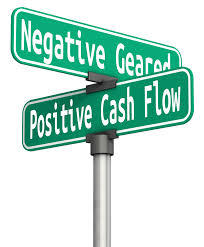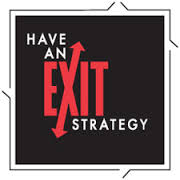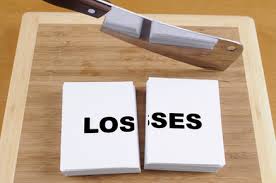
Buying negative cash flow can mean different things to different investors. I don’t consider this literally, because every time you buy a house to fix and flip, you are buying a property with negative cash flow. At least until it sells. Or, if you use the hard money to permanent loan strategy that we teach, you are most likely negative until you get the hard money refinanced. (If you don’t know what I am talking about, you must read our free report on how to buy cash flowing real estate with little or no money down. You can get that report on our website for free. www.PineFinancialGroup.com)
For this article, I consider negative cash flow a rental property that will not cash flow in its current condition and situation with the permanent loan in place. Here are four rules you need to obey if you are buying a property like this:
Know your exit strategy
This is by far the most important way to stay safe with any deal you are doing. If you are buying on pure speculation, your exit strategy will be to absorb the negative cash flow for X number of years and sell the asset for a profit. In an appreciating market like we are currently in, it is tempting to do this; however, this is exactly what I was doing when I got into trouble. I was utilizing this strategy when I had little or none of my cash into it initially, and the negative amount is something I thought I could handle forever with reserves or other income sources. I got caught when interest rates started to increase in 2007, and my small negative cash flow became big negative cash flow. Here are some examples of exit strategies that might make sense when buying a current loser of a deal:
• Apartments where you can increase occupancy and/or reduce expenses. This is often referred to as stabilizing, and is a good and frequent strategy of experienced investors. Once stabilized, the asset has much more value and can be sold for big profits.
• Buying at a discount in a nice neighborhood and selling the property to the tenant after 2-3 years. Be sure to have a plan B in case the tenant does not buy!
• Buying land in front of future government growth, like near a future light rail station, where you can build or flip when the development makes it to you. This really is pure speculation, but has proven to be very profitable for friends of mine.
• Buying in new neighborhoods early. It is not uncommon to see appreciation as a development gets built out.
• Buy at retail prices, but buy in areas that you feel will appreciated. This could be because of future government development or something else. I own a 4-plex in the Sloans Lake neighborhood of Denver that has really increased in value over the last two years.
Whatever your reason, use caution and have a plan B.
Be conservative with your projections
Typically when you are buying negative cash flow, you are buying based on future upside. You need to project what that upside will be. This is typically referred to as a pro-forma, which is an income statement based speculation. It is very rare for a pro-forma to actually perform, so you need to be as conservative as possible. If you project that it will take you 6 months to renovate and re-rent a small apartment building, you might want to project 9 or 12 months. I also suggest budgeting for the unknowns. We see this with fix and flips a lot. If you put together projections on what you actually think will happen, you will most likely be disappointed. If the deal is strong after your conservative adjustments, you probably have a great deal, if it is not… proceed with caution.
Plenty of cash reserves
This should go without saying, but it is so critical I have to mention it. You should have reserves even if you are buying a property that has positive cash flow, so it is even more important with negative cash flow. Doing speculative investing like this can be very risky; therefore it is probably not a bad idea to have at least 12 months of expenses in a liquid account.
Know when to cut your losses
This is the mistake I made. I saw values coming down and my negative cash flow increasing. I thought if I could just hold on long enough, I can make the money I expected, or at least not lose money. The problem is I did not get out when I could, and was stuck. I did not have the cash reserves to get out of my deals, and eventually got to a point I could not sustain. If you are dealing with a negative cash flow property where your projections have changed, it might make sense to take your small headache now and not wait until it is a stroke later. Cut your losses and move the money you can salvage into a better deal.
Buying negative cash flow properties can be very, very profitable, so I would not immediately rule it out. But, it is definitely for the experienced investor and not for the faint of heart.



